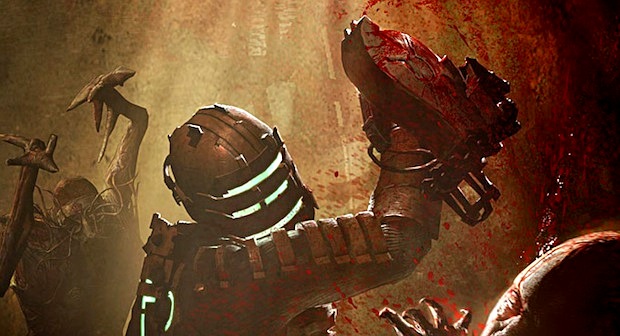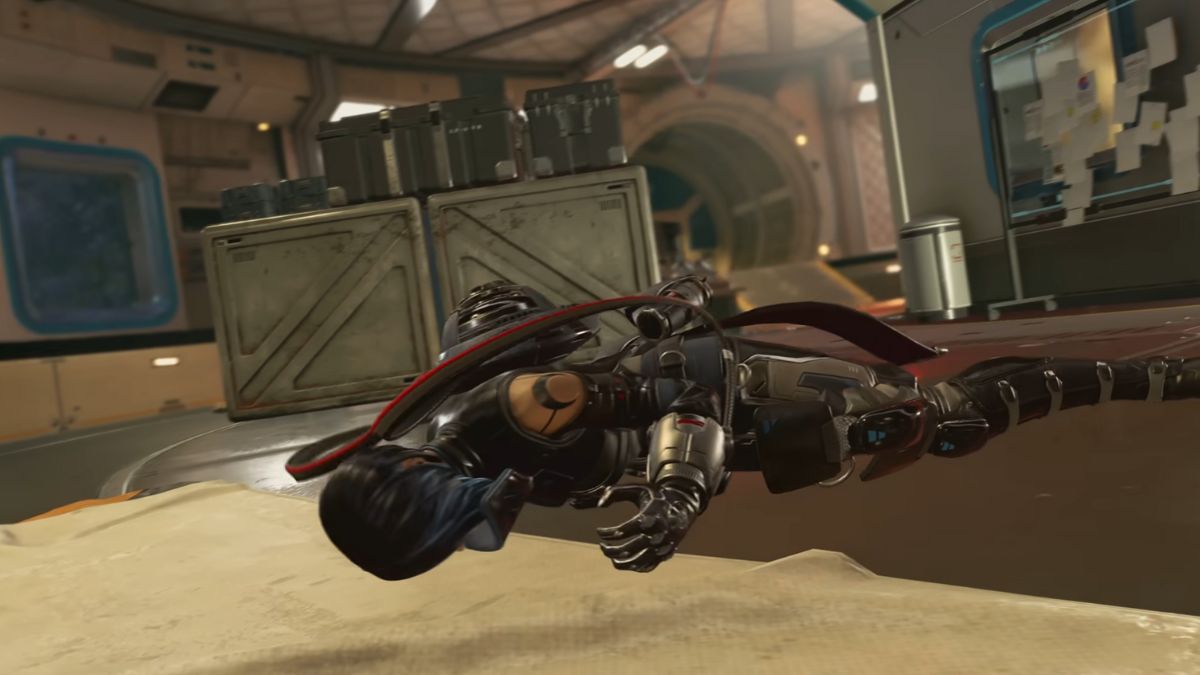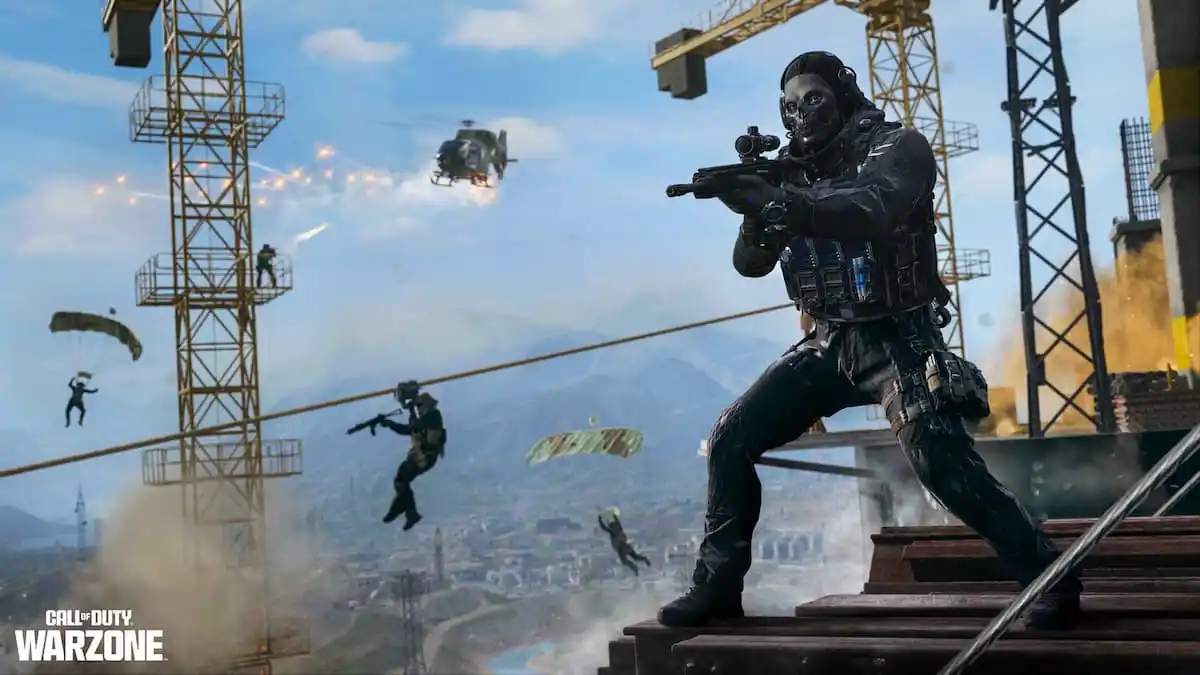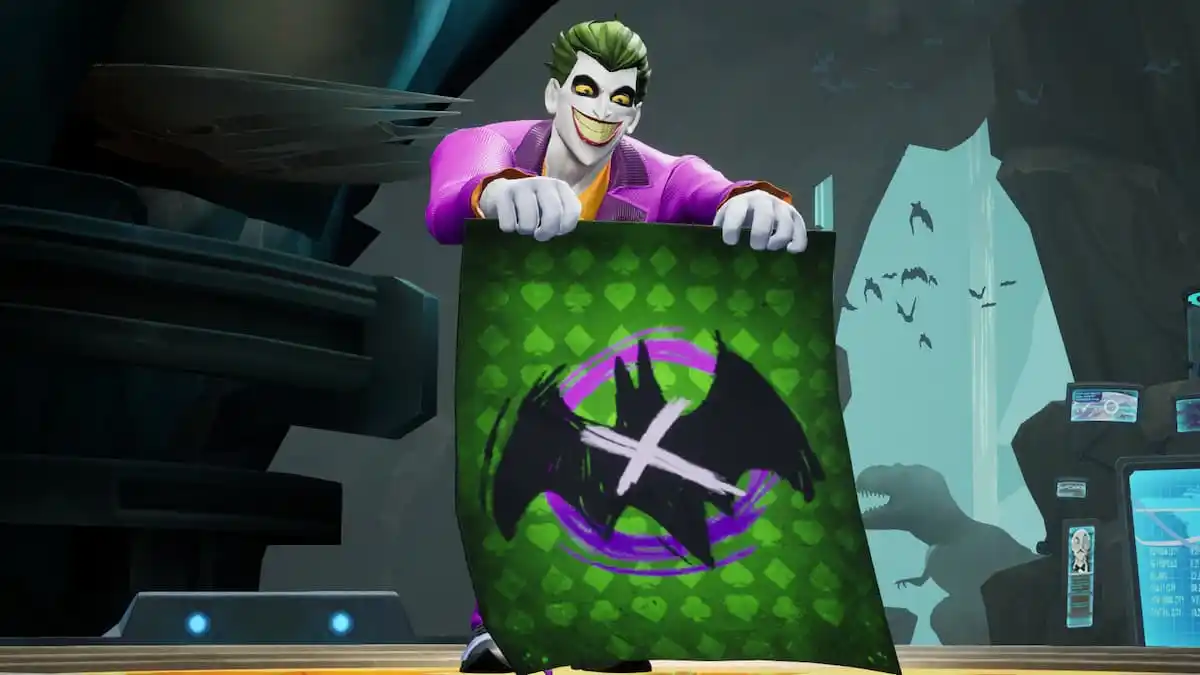Sledgehammer Games isn’t talking about its possible involvement with a follow-up to the monstrous Call of Duty franchise. But one of its front men has been talking with me about the new studio, telling me what its all about.
His name is Michael Condrey. He doesn’t like the same kind of turkey sandwiches that I do, but I trust him. He’s open and honest, dedicated to cultivating a strong culture in his fresh studio alongside EA Redwood Shores vet Glen Schofield.
He makes my insides tingle when he talks about the ideas that fueled the creation of Sledgehammer. Michael wants a studio with a warm atmosphere, where talented guys can lean on each other and have open discussions. Like that stuffy bar your broad doesn’t care for. You still go because that smoke-filled closet is a place you can relax without worrying what people think — bad varnish, sketchy chairs and all.

My views as a member of the enthusiast press has been molded by powerful experiences with Final Fantasy VI, the asinine Day Dreamin’ Davey, Super Mario Bros., and Halo. Michael’s influences, too, are all over the place.
“I played a lot of games growing up but I don’t think I ever had that one moment, or game, that flipped the switch,” he tells me via e-mail, in response to a question about what influenced him to become a developer.
“I have some vivid memories of childhood games that captured my imagination — Adventure, Archon, Karateka — to name a few. We played a lot of Tecmo Super Bowl in college,” he says. “I thought the original Half-Life was a particularly great title.
“The God of War series was probably my favorite PS2 franchise and I really enjoyed the Ratchet and Clank series on that console as well.”
Switching to the current generation, Michael is overwhelmed by its dazzle, able to single out the one sitting in his disc try right now. Modern Warfare 2.
“The current gen systems are beginning to hit the sweet spot now and there are a lot of really good titles that have come out recently. Although lately my PS3 has Modern Warfare 2 in the tray nearly all the time.”

Visceral’s Dead Space also has a place lower on my influential game list. Its unique brand of punchy horror, the feelings it conjures of hopelessness of situation and captivity and dread put it far above intellectual-types like Silent Hill and Alone in the Dark or action games like Resident Evil or Doom II.
Michael had a hand in Dead Space. In fact, it was one of his last projects before moving on to Sledgehammer.
Activision announced Sledgehammer Games in November 2009, months after reports that that Michael and Schofield jumped from Visceral Games in order to establish an Activision-owned Bay-area studio. The detail I latched onto with the announcement was the fact that it was to be led by two men responsible for a game that appeared on my Game of the Year list.
Michael describes the leave from Visceral after Dead Space as a “difficult decision.” I feel the same way after eating at Salad World. You spend all this time waiting for the salmon, and then mixing coagulated vinaigrette onto the heaping greens and on top of the grilled fish. But after you finish the brilliant meal, you’re forced to leave. And there are no seconds in Salad World.
“Leaving Visceral was a difficult decision,” Michael says via e-mail. “I had been with EA for nearly a dozen years prior to moving to Sledgehammer Games, and I was proud of what we had accomplished with Dead Space.”

Michael notes that working with mega-publisher EA isn’t as bad as we in the media tell our readers. He’s right, but our tune has changed since Riccitiello took the daddy chair, charging after new IP like a blind bull with a mescaline issue.
“I read the blogs as much as anyone,” Michael continues, “and even though some people tend to bash EA and other large publishers, my experience there was great.”
“I learned a tremendous amount from strong mentors over the years, and I consider many who are still at EA to be friends.”
Leaving behind friends and studio is tough. But Michael still carries the lessons he learnt from Visceral Games. It’s a small comfort.
“Two things stand out in particular to me,” Michael points out to me, “first, it is clear that the consumer is rewarding quality beyond anything else. It sounds extremely intuitive, I know. The truth is that it’s easy for a development team to get trapped trying to compete on the length of the game, game modes, features, etcetera and lose track of priorities and scope.
“In the end, often the result is just a longer, blander experience. As a consumer, I’ll take a 12-hour, 90+ Metacritic thrill ride over a 15-hour, 77 rated game any day.

“The second lesson is a little more personal to me but it relates to the first,” Michael continues. “I found that I worked just as hard and put in just as many hours on some of the less successful games as I did on Dead Space, but the feeling at the end of Dead Space was enormously different. Not only had we created a title that was well received, but we had built a cohesive team that persevered through teamwork and a shared passion for the game.
“The pride you feel, and see in the faces of your fellow teammates, at the end of a successful game is something special. That feeling is what drives us now.”
He’s talking about Sledgehammer, a studio that is “focused on delivering quality and preserving polish time first and foremost” — a ghost of what Michael didn’t leave back at EA’s Visceral studio.
This is why my insides tingle. When Michael and I talked about Sledgehammer over the phone, I saw him imagining the endless possibilities, staring at a white ceiling’s invisible clouds, waving his arms around and conjuring thoughts of its potential success and the bonds he’ll develop as he and his team makes rad games.
And I buy into what he’s selling. Michael believes in the fundamental that Sledgehammer must have a stable and warm studio culture, where staff don’t dread working their asses off seven days a week and their wives have nothing to write on Gamasutra about. Lofty as those goals are, he has even more.

“There are a couple of core beliefs that are pivotal to the culture here at Sledgehammer,” Michael tells me. “First and foremost, we want a culture that empowers people to do their best work.
“We hold fast to the core belief that we succeed and fail as a group. We have built a foundation of a team with exceptionally talented individuals, and we established, from the beginning, that our studio is built on the values of teamwork, collaboration, and open and honest dialogue.”
Michael says, “The studio dynamic is key for us. It’s hard enough to develop a great game when everyone is pulling in the same direction.”
And Sledgehammer is still looking for more bodies to pull in the same direction. But you have to be a top-tier dude that shares Michael’s core studio philosophies.
“We are looking to hire top caliber talent, but that alone isn’t enough for us,” Michael tells me. “We want people who are committed to building a studio that feels like a family — where you want to spend time working together because you believe that the people working next to you are pulling with you, and pulling for you.”

Part of the excitement of being a founder of a new studio, to Michael, is infusing the Bay-area building with his tie-dye, bellbottomed feeling.
“Glen (Schofield) and I are interested in establishing a studio built around a certain energy — one that represents our passion for creating exceptional games, and that also represents a culture where people are excited to come and do their best work,” Michael says to me when after I asked him what it was like to get his own digs.
“Sledgehammer was that opportunity for us — to build a studio that we envision will be a fantastic place for people to work, and a place that will allow us to make games we are proud to put our names on.”
Names are funny, especially when you start considering “Sledgehammer.” What’s in this name? Is it a riff on Apple’s 1984 commercial or Peter Gabriel’s smash hit?
No. “At a high level,” Michael tells me, “we picked Sledgehammer as our mark, or brand if you will, because it conveyed the high-impact personality of the studio.“
“We work hard, we play hard, we strive for nothing less than excellence.

“We want to leave our imprint on our games, with our fans, and in the hearts of our studio employees and their families. We talk about the soft skills and how a great culture are imperative to what we’re doing — because we believe they are ultimately keys to delivering the type of games we want our studio name on.”
That of course begs the question of what Sledgehammer is working on. We know a lone game, part of an “existing” Activision franchise, is in the works.
It’s not a leap of logic to believe this game is a big deal: after all, the world’s largest publisher did create a new studio, ostensibly to house it.
And the word is that Sledgehammer is working on the next Call of Duty, the kind of “big deal” franchise that Activision would create another studio for.

I can’t get Michael to comment directly to the rumors, but I try to ask a question that works around the issue: will this game have real weapons or laser pistols?
Michael says “Maybe.”
Vague answer. And considering my ability to predict the future, I refuse to play voodoo doctor. But I don’t need to lick a frog to learn this one Sledgehammer factoid: Michael is enthusiastic about Sledgehammer.
“I believe in what we’re trying to do as a studio, and in our product,” he tells me over the phone. “I feel very fortunate. This is bigger than Glen and I, or any individual members of the studio. This is about the group of us coming together to do something great.”
“I feel lucky to be a part of this team, frankly.”
And I think we’ll be lucky to play their game in the future, if all of these pieces come together as badly as Michael wants them to.
[image source 1 — “At the Bar”]
[image source 2 — “Unknown 12”]
[image source 3 — “Dead Space: Ishimaru”]
[image source 4 — “Dead Space 4”]
[image source 5 — “Dead Space Necromorph Hunter”]
[image source 6 — “Isolation Level 5”]
[image source 7 — “The Warmth of Growth”]
[image source 8 — “Call of Duty Aftermath”]




